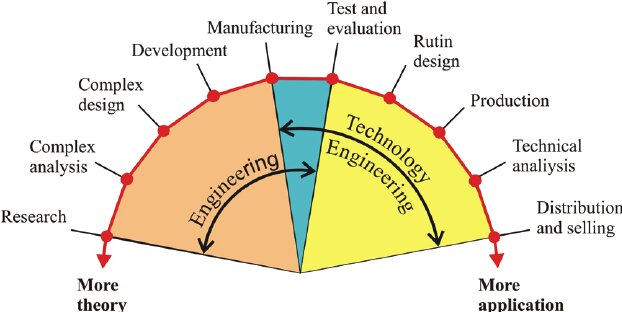General Engineering Exploration Prompts
What you like matters.
- What are you already interested in?
- What do you pay attention to?
- Where do you see problems that you are intereted in?
- How does engineering or computer science tie into your interests and problems you care about?
- Which perspective resonates most in regard to how YOU want to contribute to creating solutions using engineering, computing, math, and science?
What do you already know about engineering or computer science?
What more do you need to know?
Where can you go to find answers or experiences?
Sometimes what you DON'T want is just as important.
Think big picture, rather than specific jobs. For example:
- A mechanical engineer focuses on the internal workings of builldings, cars, medical devices, and everything inbetween.
- You might have a job that requires you to sit at a computer looking at spec sheets and crunching numbers. It is also equally possible a job would have you collaborating on the types of materials that could be used in a car or building to maximize energy efficiency.
Considering what you care about is important. From there, think about contributing to making what you care about better
Thinking....about the engineering spectrum may help gather data.
Consider....who the experts are at a university and what they do, research or teach can narrow your scope.
Identify...student groups, clubs and organizations that are doing things to apply what is being learned helps put into perspective why the foundational information is important. They also help visualize where you are interested in contribuing and what you need to learn in order to add value to the projects.

(Yilmaz, Ö, Akinci, T.Ç., Tunçalp, K.. (2010) Expectations of the students of mechatronics
in the conversion of technical training faculties into technology faculties of technology,
Procedia - Social and Behavioral Sciences. Vol 2., Issue 2., pp. 1877. https://doi.org/10.1016/j.sbspro.2010.03.389.
(https://www.sciencedirect.com/science/article/pii/S1877042810004295))
Look at what the second two years of a degree includes.
Using flowcharts provided by academic departments and the course catalog build an academic plan.
Focus on 4-5 classes at a time. A common goal is to be finished with a degree in 8 semesters (4 years). If you need more time (9 semesters) or need to take classes in a summer term, plan when and where you will do this. Talk through the trade-offs of taking summer classes versus a 9th semester with working a job or accepting an internship with a financial advisor and your support network.
The majority of learning happens outside the classroom. Consider where you can operationalize what you are learning and how you can gain new perspectives. Usually this happens through engaging with a student club or organization. You can also get involved with undergraduate research or work a part-time job on campus or in Bozeman. Whatever you do, do it intentionally and with an eye on your vision.
If you are not working toward your vision, you are not working your agenda and are a greater risk of not reaching your goals.
Planning and organization are the largest contributors to academic success.
Be able to identify:
- who needs to be involved (faculty/peers) in;
- what you want to learn or do;
- when you need to learn or do something;
- where do you need to be to learn or do what you need to learn and do;
- how will you break down the challenges involved and access the success factors (people, places, opportunities) involved with working your plan and your goals...
But most important:
- Know Who is in charge. If you are not leading how you are working toward your goals and directing your learning someone else is. This might be okay for a bit, but in the end your determination to learn and do comes from what you are interested in. Your inner super genius is unlocked with you align your talents with your interests. This is what powers you through learning and doing hard things.
What you are doing is hard. But it is worth it.
